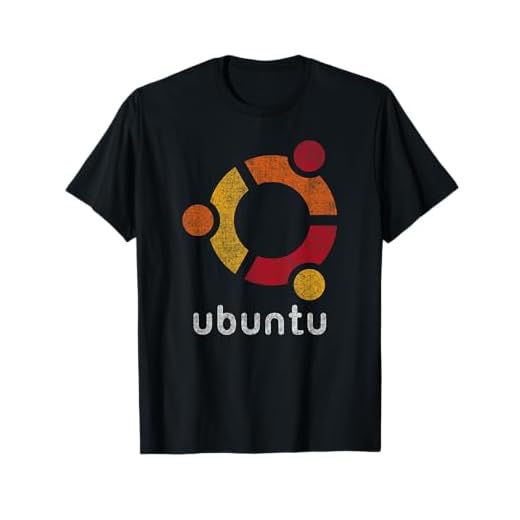



According to industry data, over 20 million nodes are currently powering blockchain networks, each playing a vital role in the validation and maintenance processes. If you're considering joining this decentralized infrastructure, you might wonder if mini PCs can handle the task. While they may not seem like the typical choice, mini PCs, when equipped with multi-core processors, generous RAM, and high-capacity SSDs, are capable of running full nodes efficiently. But what specific components and configurations are needed to facilitate seamless integration?
Key Takeaways
- Mini PCs can run a full node efficiently with the right hardware, processor, RAM, and storage, similar to larger computers.
- Mini PCs offer significant power efficiency, making them ideal for clusters where power usage is critical.
- Raspberry Pi models with sufficient memory can also function as dedicated nodes, providing a cost-effective option.
- A solid-state drive (SSD) with 1TB+ capacity helps ensure efficient node operations and constant data storage needs.
- Linux-based operating systems, such as Ubuntu, are recommended for mini PCs due to their stability and customizability.
Choosing the Right Mini PC
When considering a mini PC for your dedicated blockchain node, what criteria should you prioritize to guarantee performance and reliability? The right mini PC can make all the difference in ensuring seamless operation, so it's essential to evaluate key specifications carefully.
For a blockchain node, the CPU plays a pivotal role. Opt for a mini PC with a multi-core processor, focusing on processing power that can handle the constant influx of transactions and data. RAM capacity is equally important, as it directly affects the efficiency of your node. Aim for at least 8GB to provide ample memory for your node's operations. Storage is also critical; a solid-state drive (SSD) with a minimum of 1TB capacity is necessary to store the entire blockchain.
Additionally, consider network connectivity. Confirm your mini PC has reliable Ethernet connectivity and, if needed, Wi-Fi capabilities. A Linux-based operating system, such as Ubuntu, is ideal for blockchain nodes due to its stability and flexibility. Ultimately, a thoughtfully chosen mini PC will provide a robust foundation for your dedicated blockchain node.
Processor Requirements for Nodes
To guarantee the seamless operation of your blockchain node, it is pivotal to select a mini PC with a powerful CPU that can handle the constant influx of transactions and data. This processing power is especially indispensable for Ethereum full nodes, which need to keep up with the computational demands of processing transactions and blocks.
- Quad-core and high clock speed: Ensure your mini PC has at least a quad-core processor with a clock speed exceeding 2.0 GHz. This configuration will provide the necessary processing power for handling transactions and maintaining blockchain integrity.
- Modern CPU architecture: Opt for a mini PC equipped with a modern, high-performance CPU that can efficiently process transactions and blocks. An i5 processor or higher is recommended for dedicated hardware.
- Multi-threading support: Choose an Ethereum client that leverages multi-threading, such as Geth or Parity, to distribute the workload across multiple CPU cores. This dramatically enhances performance and guarantees your node can handle the demands of the blockchain.
RAM and Storage for Blockchain
You will need a robust combination of RAM and storage to guarantee your mini PC can efficiently handle the significant data storage and processing demands of a blockchain node. Necessitating a sufficient amount of RAM is vital because blockchain nodes require storing the full transaction history, which demands a significant amount of memory. The minimum requirement for RAM is 16 GB, and future-proofing with 32 GB is advised, especially considering that future phases of blockchain may demand more data processing.
For storage, you should opt for a solid-state drive (SSD) rather than a hard disk drive (HDD). The Ethereum blockchain already exceeds 1 TB in size, so a 2 TB SSD is recommended. SSDs offer much faster read and write speeds compared to HDDs, making them more suitable for the constant demands of blockchain activity. Such performance is particularly important as nodes need to quickly download new blocks and propagate transactions across the network.
To guarantee the best performance, consider using a Linux operating system. The stability and security this provides will be a whole lot more beneficial in the long run, especially if you are dealing with sensitive data.
Secure Network Configuration
Implementing a robust network configuration is essential for your mini PC to securely function as a dedicated blockchain node. To safeguard your node, you must take several critical steps.
- Use a secure operating system: While you might want to run Windows for familiarity, consider Linux alternatives like Ubuntu, as they offer better security and better support for small form factor machines.
- Configure SSH and firewall: Setting up secure shell (SSH) access with strong authentication ensures that only trusted persons can manage your node remotely. Additionally, configuring a firewall to control incoming and outgoing network traffic prevents unauthorized access.
- Protect network communications: Implementing a virtual private network (VPN) or other encrypted tunneling protocols shields your data from eavesdropping and tampering.
Regularly updating the operating system and blockchain node software guarantees that any known vulnerabilities are patched. Monitoring network activity and logs also helps detect suspicious behaviors or access attempts. By following these steps, your mini PC can operate securely as a dedicated blockchain node.
Operating System for Nodes
An efficient and secure operating system can vastly improve the performance of a dedicated blockchain node, and Linux-based systems like Ubuntu have proven to be reliable choices for these applications due to their stability and customizability. When running a node, you'll want an operating system that's optimized for your specific requirements, enabling necessary system services and managing network connectivity. Protected access to the node is also indispensable, typically achieved through SSH, to guarantee only authorized personnel can manage and maintain the system.
Regular updates and security patches are essential to protect your node from vulnerabilities and ensure its continued reliable operation. You'll also want to dedicate configurations and resource allocation for the operating system to maximize the performance and efficiency of your blockchain node. By doing so, you can guarantee your node runs smoothly and efficiently, allowing you to focus on other aspects of your blockchain operations. With the right operating system in place, you'll be well on your way to running a successful and secure blockchain node.
Software Installation for Nodes
While setting up a blockchain node on a mini-PC, selecting and properly installing node software like Geth or Besu guarantees seamless integration with the Ethereum blockchain. This essential step guarantees that your Ethereum node runs efficiently and securely.
- Configure the Data Directory: Set up the node to store blockchain data in a dedicated directory. This ensures that your node can properly synchronize with the network.
- Network Parameters: Specify the network settings, such as the node's IP address and port numbers, to establish communication with other nodes.
- Synchronization: Confirm that your node is properly synchronized with the Ethereum network to avoid any data inconsistencies.
Maintenance for Elasticsearch
Effective Elasticsearch maintenance involves regular cluster health checks and resource monitoring to identify performance issues. To guarantee your cluster runs smoothly, you might want to use tools like Elasticsearch-provided APIs to monitor its health. Regularly checking cluster health and performance metrics helps you detect issues before they become critical. Proactive index management is also key. This includes optimizing shard allocation and performing index rollover and lifecycle management to improve efficiency. You can also automate these tasks using Elasticsearch tools, such as the migration assistant, to ensure seamless execution without the need for manual intervention.
Frequently Asked Questions
Can I Use a Mini PC as a Server?
Yes, you can use a mini PC as a server, ensuring reliable 24/7 uptime and low power consumption. They are cost-effective and can meet specific network performance demands for various blockchain protocols.
Can You Use a Mini PC for Work?
"You can harness the versatility of a mini PC to boost your productivity. With its impressive performance, a mini PC can efficiently handle demanding tasks while conserving space and energy–ideal for anything from coding to hosting blockchain nodes."
Conclusion
So, you finally made the leap and set up your mini PC as a blockchain node. Congratulations The sense of pride and accomplishment you feel is like a block dropping into place. Now, go forth and contribute to the blockchain ecosystem with your compact but powerful setup, ensuring the security and integrity of the decentralized ledger.
Disclosure: As an Amazon Associate, I earn from qualifying purchases.




